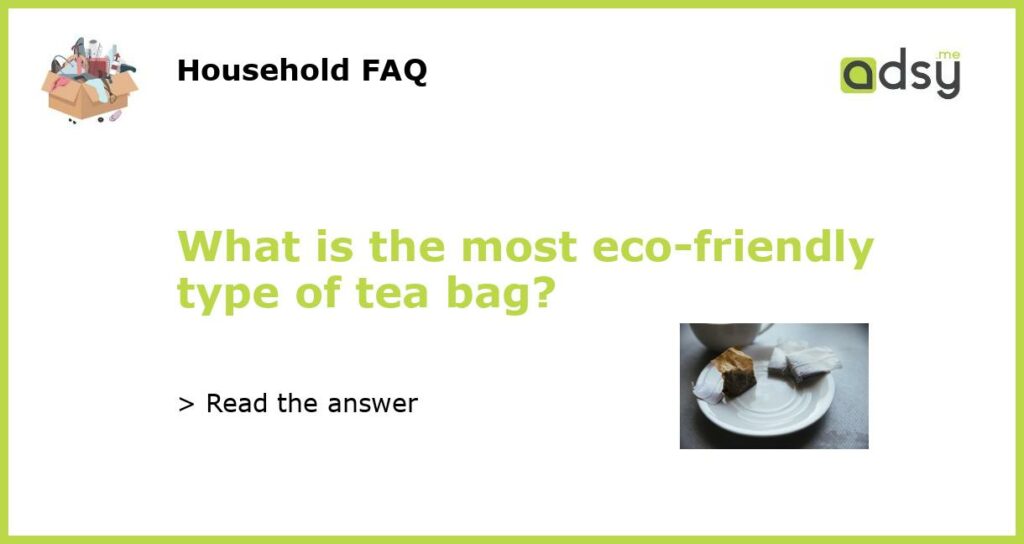Introduction
Tea is one of the most popular beverages in the world, with a long history and a wide variety of flavors and types. As the demand for tea continues to grow, so does the need for more sustainable and eco-friendly tea production methods. One important aspect of this is the type of tea bag used. Tea bags come in various materials, from traditional paper to more modern options like nylon and biodegradable pyramids. In this article, we will explore the most eco-friendly type of tea bag and its benefits for the environment.
Traditional Paper Tea Bags
Traditional paper tea bags are made from a blend of wood and vegetable fibers, which are biodegradable and can easily break down. However, many paper tea bags are treated with chemicals like epichlorohydrin, which is used to strengthen the paper but is considered to be a potential carcinogen. Additionally, the production of paper tea bags requires a significant amount of energy and water, which can have a negative impact on the environment. While traditional paper tea bags may be biodegradable, the use of chemicals and the production process make them less eco-friendly compared to alternative options.
Nylon Tea Bags
Nylon tea bags are often made from petroleum-based synthetic materials, which are not biodegradable and can take hundreds of years to break down. The production of nylon tea bags also requires a significant amount of energy and releases greenhouse gases into the atmosphere. In addition to the environmental concerns, some studies have found that nylon tea bags can release microplastics into the brewed tea, which can then be consumed by humans. Given these environmental and health concerns, nylon tea bags are not considered to be a sustainable or eco-friendly option.
Biodegradable Tea Bags
Biodegradable tea bags are made from materials that can break down naturally over time, without causing harm to the environment. Some common materials used for biodegradable tea bags include cornstarch, hemp, and other plant-based fibers. These materials are renewable and require less energy to produce compared to traditional paper and nylon options. Biodegradable tea bags also do not release harmful chemicals or microplastics into the brewed tea. However, it is important to note that the biodegradability of these tea bags can vary depending on the specific materials used and the conditions in which they are disposed of. If not properly composted or disposed of in a suitable environment, biodegradable tea bags may still contribute to waste and pollution.
Loose Leaf Tea
One of the most eco-friendly options for enjoying tea is to use loose leaf tea instead of tea bags. Loose leaf tea is simply the dried leaves of the tea plant, which are often sold in bulk or in reusable containers. By using loose leaf tea, you eliminate the need for any type of tea bag, reducing waste and environmental impact. Loose leaf tea also allows for a more customized brewing process, as you can control the exact amount of tea used and the brewing time. Additionally, loose leaf tea often has a higher quality and more intense flavor compared to tea bags, making it a preferred option for tea enthusiasts. While loose leaf tea may require a bit more effort in terms of brewing, the environmental benefits and superior taste make it a worthwhile choice for eco-conscious tea drinkers.






